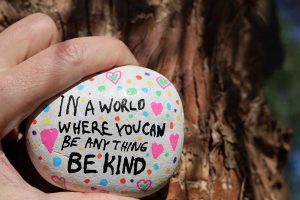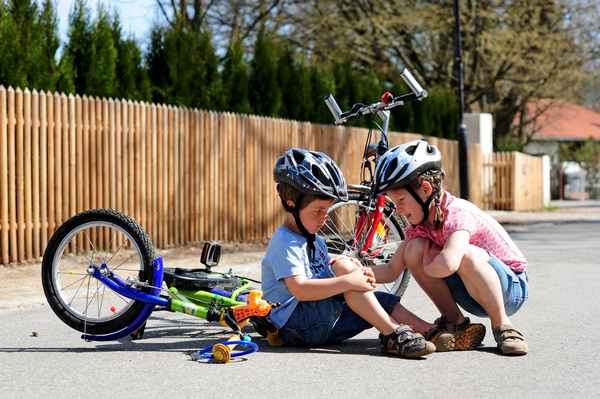Is kindness enough?
 Various publications have come into being in recent times focusing on the idea that we humans are a fundamentally kind and considerate species. I myself subscribe to a quarterly magazine called Positive News, which aims to produce ‘constructive journalism’ and stories ‘about what’s going right’. The current issue carries well-produced and illustrated articles on, for example, a ‘safe house’ in Ghana that rescues and rehabilitates trafficked child slaves, a community energy project in South-East London, and a holiday company that offers ‘sustainable walking holidays at a reasonable price’. It also has a 15-page section of short what it calls ‘energising’ pieces of ‘good news’.
Various publications have come into being in recent times focusing on the idea that we humans are a fundamentally kind and considerate species. I myself subscribe to a quarterly magazine called Positive News, which aims to produce ‘constructive journalism’ and stories ‘about what’s going right’. The current issue carries well-produced and illustrated articles on, for example, a ‘safe house’ in Ghana that rescues and rehabilitates trafficked child slaves, a community energy project in South-East London, and a holiday company that offers ‘sustainable walking holidays at a reasonable price’. It also has a 15-page section of short what it calls ‘energising’ pieces of ‘good news’.
Then in the city I live in, you can pick up The Swansea Positive free of charge, with the stated purpose of highlighting ‘the very many positive and encouraging activities that are happening in Swansea’s diverse communities’. It describes its contents as ‘good news stories which are not printed in currently available media and so go unnoticed’, providing, it says, ‘a healthy alternative to the many negative and depressing headlines’. Its most recent editions have carried articles on topics and events such as a local community farm, the Swansea Chinese community, an Air Ambulance fundraiser and the regular Saturday morning park run.
It’s certainly true that what’s most likely to ‘make news’ more widely are negative, uncooperative and, especially, violent forms of behaviour, while caring, cooperative activities tend to get taken for granted and often go unmentioned. And this can reinforce in many people’s eyes the common idea that human beings are by nature selfish, uncooperative and even cruel and violent, and so any attempt at establishing a world of social harmony and free of conflict is doomed to failure.
This is an idea that has been expressed or implied in much that has been said and written over the years, both in commentary on human behaviour and in writings of fiction. As far back as the sixteenth century, Machiavelli in The Prince insisted that ‘all men are evil’, an idea taken up again in the following century by Thomas Hobbes who argued in his Leviathan that human beings are greedy by nature and human life is ‘a condition of war of all against all’, and then by Adam Smith’s Wealth of Nations, where private interest or ‘self-love’ is seen as the primary mover of human action. This view of humanity was later echoed in the twentieth century by writers with more ‘scientific’ pretentions such as Robert Ardrey (The Territorial Imperative), Konrad Lorenz (On Aggression) and Desmond Morris (The Naked Ape). And it seemed to receive confirmation in widely read works of fiction such as William Golding’s Lord of the Flies, and, according to how you interpret it, George Orwell’s Animal Farm.
However, in more recent times the tide does seem to have turned. Opinions have moved far more towards support for Albert Einstein’s statement of over 80 years ago that ‘human beings are not condemned, because of their biological constitution, to annihilate each other or to be at the mercy of a cruel, self-inflicted fate’. This has been reinforced since by a slew of studies with titles like A Cooperative Species. Human Reciprocity and its Evolution, Survival of the Friendliest, Team Human and Ultrasocial. The Evolution of Human Nature and the Quest for a Sustainable Future. These have drawn the conclusion that not only are human beings capable of manifesting peaceful and cooperative behaviour rather than being hostile and competitive with one another but are overwhelmingly likely to behave in that way if conditions allow it. According to these findings humans are eminently flexible beings who will prefer to make common cause with their fellow creatures unless they are driven into doing otherwise by conditioning or situation. And they will behave in a cooperative way both because it is likely to benefit them in a practical way (ie, one good turn is likely to deserve another) and also because it is natural for human beings to derive satisfaction out of being of assistance to others and to enjoy the approbation this is likely to bring from their fellow creatures.
A survey via online questionnaires called The Kindness Test, commissioned in 2021-22 by the BBC in conjunction with psychology researchers from the University of Sussex, came up with similar findings. It concluded that human beings are a kind species generally prepared to cooperate with and help one another in their daily lives and activities and that, if we consider all the interactions we have with other people on a regular basis and over a period of time, the vast majority are likely to be of a kind and collaborative nature, even if we do not necessarily notice this or register them as such.
More recently the Vegetarian Society magazine, The Pod, carried a feature entitled ‘How to Live Kindfully’, an interview with ‘wellbeing expert’ Anna Black about her book A Year of Living Kindfully. She quoted an Oxford University study which found that ‘seven days of kindness activities significantly boosted people’s levels of happiness’ and then went on to suggest 10 ways of being kind in your everyday life. These included being less judgmental of others, cleaning up litter outside your home, volunteering in the community, listening closely to others and being ‘kind to the environment’.
It’s easy of course to be critical of attempts to encourage ideas on behaviour and activities which are socially and humanly desirable. It might be said that, in the context of the massive problems the society we live in throws up such as inequality, insecurity, war, poverty and racial prejudice, such steps are surely no more than small beer, which can’t even touch the edges of those problems. On the other hand they do at least help to spread the idea – well attested as it is now – that humans are a species capable of cooperating with and helping one another in their daily lives and activities and generally prepared to do so.
Of course, publications like Positive News and A Year of Living Kindfully don’t (and can’t) override the ‘bad news’ that we hear about every day and that many experience in their daily lives. But what they do illustrate is that, despite the overwhelmingly powerful pressures the society we live in puts on people to get the better of others and so not be ‘kind’ to them, in so many of the actions and interactions of our daily lives, and even in some of the ‘competitive’ situations that are created for us, we can still manage to be kind to others and to cooperate with them.
The question that naturally arises from this is why is it that the society we live in (ie, capitalism) militates against people being ‘positive’ and ‘kind’ to one another all the time? The simple answer is that capitalism is, by its nature, a competitive society with an ethic that runs directly contrary to the human tendency to help and cooperate with others. It encourages people to compete with one another, to try to get the better of them and to do them down if that seems necessary. It does this in various ways, but in particular by tempting people with the lure of gain or reward, often financial, and so pushing them to behave in ways that divide them from their fellow humans, often making the ‘success’ of one into the ‘failure’ of others.
Another aspect of this is society’s basic division into two classes, with one of them (the owning class) exploiting the other (the working class) for wealth and profit. So, given that an inbuilt feature of the capitalist system we all live in is that we are constantly driven to compete with others in a variety of ways, as long as that system continues such divisions are bound to continue. So while those who wish to encourage us to be ‘positive’ and ‘kind’ can only be applauded for their efforts, they are in a sense – sadly – on a hiding to nothing if they leave the whole system unquestioned.
But how do you question the system? It can only come through the majority of wage and salary earners – who we call the working class – using democratic political action to establish a society organised in an entirely different way from the current one. In such a society – which we call socialism – people will be able to operate in the harmonious and cooperative way that we know to be most fundamental to humans and beneficial to the species. In such a society, one of common ownership, free access to all goods and services and democratic organisation, the human tendency to share and cooperate will truly come into its own. People will be free to express their talents and creativity in ways that will vastly outstrip the limitations laid upon them today by the need to conform to the rules of a society with the overriding preoccupation of promoting competition between all humans as a way of realising profit for the few.
HKM
